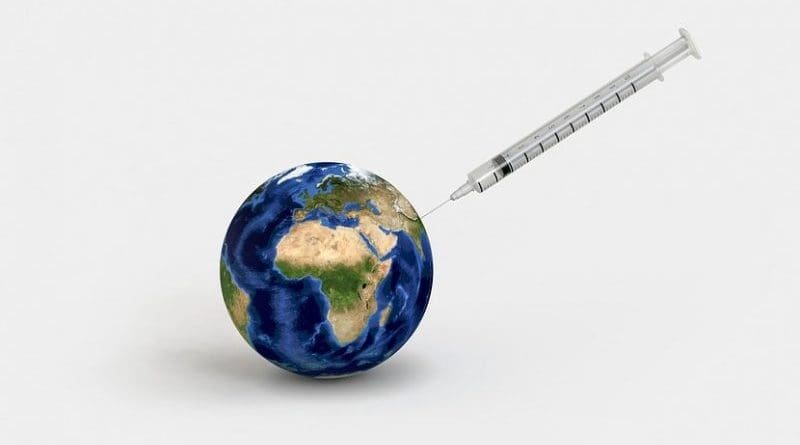WHO Warns Measles On The Rise In ‘All Regions’
By RFE RL
(RFE/RL) — The World Health Organization (WHO) is warning that the number of measles cases around the world nearly quadrupled during the first three months of 2019 compared to the same period last year.
Citing provisional data about the preventable but highly contagious disease, the United Nations agency said on April 15 that higher rates of measles had been recorded in “all regions of the world.”
A WHO statement noted that current outbreaks had been recorded in Ukraine, Georgia, Kazakhstan, and Kyrgyzstan as well as in several countries in Africa and Southeast Asia.
WHO is appealing for better vaccination coverage to combat the disease, which can kill a child or leave it disabled for life.
It noted that the rise of the number of measles cases follows consecutive increases during the previous two years.
In 2017, the most recent year in which estimates are available, WHO said measles caused “close to 110,000 deaths” worldwide.
“Over recent months, spikes in case numbers also have occurred in countries with high overall vaccination coverage,” including the United States, Israel, Thailand, and Tunisia, the statement said.
Those rises were attributed to the disease spreading “fast among clusters of unvaccinated people,” the UN agency added.
Increasing the coverage of vaccination maximizes protection, but 95 percent vaccination coverage is needed to prevent outbreaks, according to WHO.
The agency said that measles was “almost entirely preventable through two doses of a safe and effective vaccine.”
But it said global coverage with the first dose of the measles vaccine had “stalled” at 85 percent for several years, and second-dose coverage stands at about 67 percent.
WHO also said that 25 countries around the world still did not include a second dose in their national vaccination programs.
In the United States, where there is a vocal fringe of parents who oppose measles vaccines, the number of confirmed cases of measles jumped by nearly 20 percent during early April, WHO said.

